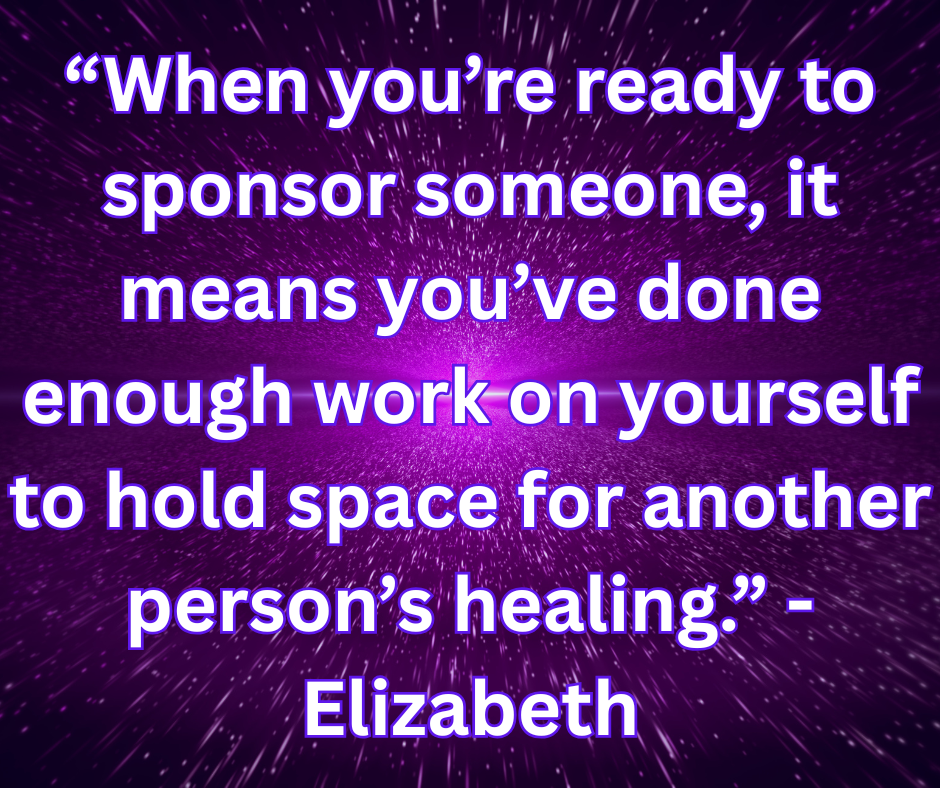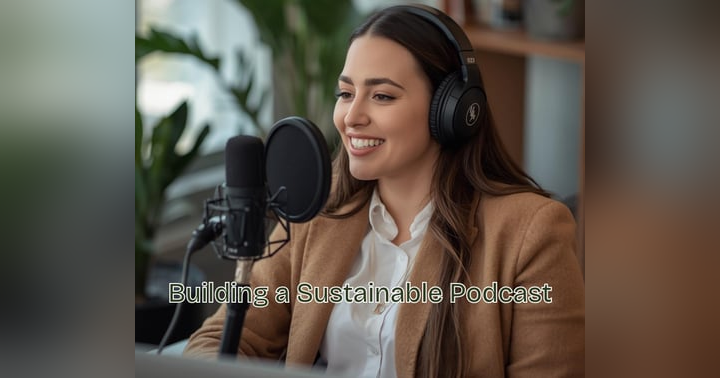
In this post, we’ll be delving deeper into the extraordinary journey of Elizabeth Kipp, a remarkable individual who overcame a 31-year reliance on opioids and benzodiazepines. Her story is one of resilience, hope, and the power of alternative strategies in managing chronic pain and addiction. We explore the pivotal role of the Betty Ford Center's pain-management track, and the holistic methods that ultimately led to her recovery. You can hear Elizabeth's full story on the latest episode of the podcast, Podathon For Recovery: Elizabeth’s Road to Recovery, where she shares invaluable insights and practical advice. Now, let's dive in!
Elizabeth Kipp's Journey from Opioid Dependence to Recovery
Elizabeth Kipp's name has become synonymous with hope and recovery in the face of chronic pain and addiction. Her journey is not just a personal triumph; it's a beacon for countless others struggling with similar challenges. After decades of battling chronic pain and a subsequent dependence on opioids and benzodiazepines, Elizabeth embarked on a transformative path to reclaim her life. Her story highlights the limitations of conventional medicine in addressing chronic pain and emphasizes the importance of a holistic, mind-body approach.
Elizabeth Kipp's 40-Year Battle with Chronic Pain
For four decades, Elizabeth lived with debilitating chronic pain, a condition that significantly impacted every aspect of her life. This pain led to multiple surgeries and a long-term reliance on prescribed medications, including potent opioids like fentanyl and benzodiazepines. While these medications provided temporary relief, they ultimately contributed to a cycle of dependence and further complications. Elizabeth's experience underscores the challenges faced by many individuals who turn to opioids as a means of managing chronic pain, only to find themselves trapped in a web of addiction.
The prolonged use of opioids not only masked the underlying causes of her pain but also led to a host of side effects, including cognitive impairment, emotional instability, and physical dependence. Elizabeth found herself in a situation where the medications meant to alleviate her suffering were, in fact, exacerbating her problems. This realization became a crucial turning point in her journey.
The Turning Point: Pain Management at the Betty Ford Center
In 2013, Elizabeth's path took a significant turn when she entered the pain-management track at the Betty Ford Center. This program offered a comprehensive and integrated approach to addressing chronic pain and addiction. Unlike traditional medical models that focus solely on symptom management, the Betty Ford Center emphasized the importance of understanding the root causes of pain and developing strategies for long-term healing.
The program incorporated a variety of modalities, including medical care, psychological counseling, physical therapy, and alternative therapies like yoga and meditation. Elizabeth was introduced to the concept of chronic pain as a brain processing issue, rather than simply a physical ailment. This understanding was revolutionary for her, as it shifted her focus from solely treating the symptoms to addressing the underlying neurological and psychological factors contributing to her pain.
One of the most impactful aspects of the program was the emphasis on developing coping mechanisms and self-management skills. Elizabeth learned techniques for managing stress, improving sleep, and cultivating a positive mindset. She also discovered the power of mindfulness and breathwork in reducing pain and promoting relaxation. These skills became essential tools in her recovery journey.
Understanding Chronic Pain: A Mind-Body Connection
Elizabeth's experience at the Betty Ford Center highlighted the critical connection between the mind and body in the experience of chronic pain. Chronic pain is not simply a matter of physical injury or inflammation; it involves complex interactions between the nervous system, the brain, and the emotional state. When pain persists for an extended period, it can alter the way the brain processes sensory information, leading to heightened sensitivity and a perpetuation of the pain cycle.
Stress, anxiety, and depression can all exacerbate chronic pain by increasing muscle tension, inflammation, and the perception of pain signals. Conversely, relaxation, mindfulness, and positive emotions can help to reduce pain by modulating the nervous system and promoting the release of endorphins, the body's natural painkillers. Understanding this mind-body connection is essential for developing effective strategies for managing chronic pain.
The Limitations of Traditional Medicine and the Role of Brain Processing
Traditional medicine often focuses on treating the symptoms of chronic pain with medications and interventions, such as surgery and injections. While these approaches can provide temporary relief, they often fail to address the underlying causes of the pain and can lead to dependence on medications. Elizabeth's journey illustrates the limitations of this approach and the importance of considering the role of brain processing in chronic pain.
Chronic pain can be viewed as a neurological condition in which the brain becomes stuck in a state of heightened alert and sensitivity. This can result from a variety of factors, including past trauma, stress, and learned pain behaviors. By understanding the neurobiology of chronic pain, healthcare professionals can develop more effective treatments that target the underlying brain mechanisms contributing to the pain experience.
Elizabeth's Recovery Toolkit: A Blend of Science and Spirituality
Elizabeth's recovery is a testament to the power of combining scientific knowledge with spiritual practices. Her toolkit included a variety of evidence-based therapies, such as cognitive-behavioral therapy (CBT), physical therapy, and medication management. She also incorporated complementary and alternative therapies, such as yoga, meditation, breathwork, and ancestral clearing.
CBT helped Elizabeth to identify and change negative thought patterns and behaviors that were contributing to her pain and distress. Physical therapy helped her to improve her strength, flexibility, and range of motion. Yoga, meditation, and breathwork helped her to reduce stress, improve relaxation, and cultivate a greater sense of body awareness. Ancestral clearing, a spiritual practice aimed at resolving unresolved issues from past generations, helped her to release emotional baggage and connect with her inner wisdom.
This multifaceted approach allowed Elizabeth to address her pain from multiple angles, promoting healing on physical, emotional, and spiritual levels. By combining science and spirituality, she was able to create a personalized recovery plan that met her unique needs and preferences.
The Importance of Personal Integrity in Relapse Prevention
One of the most crucial lessons Elizabeth learned in her recovery journey was the importance of staying in personal integrity. This means aligning one's thoughts, words, and actions with one's values and beliefs. When individuals compromise their integrity, they can experience feelings of guilt, shame, and resentment, which can increase stress and trigger relapse.
Elizabeth found that by living in alignment with her values, she was able to maintain a sense of inner peace and stability, which helped her to navigate challenges and avoid relapse. This principle became a cornerstone of her recovery and a guiding force in her life.
How Elizabeth Kipp Can Help You on Your Recovery Journey
Today, Elizabeth Kipp is a stress-management and ancestral-trauma specialist, recovery coach, and author dedicated to helping others overcome chronic pain and addiction. Drawing upon her personal experience and professional expertise, she offers coaching, workshops, and resources designed to empower individuals to reclaim their healing power.
Elizabeth's approach is grounded in the principles of mind-body medicine, neuroscience, and spirituality. She helps her clients to understand the root causes of their pain and addiction, develop effective coping mechanisms, and cultivate a greater sense of self-awareness and resilience. Her compassionate and insightful guidance has helped countless individuals to transform their lives and find lasting relief from chronic pain and addiction.
Resources for Recovery and Support
If you are struggling with chronic pain or addiction, there are numerous resources available to support you on your recovery journey. Some helpful resources include:
- Narcotics Anonymous (NA) and Alcoholics Anonymous (AA): Peer support groups for individuals recovering from addiction.
- Recovery 2.0: A community focused on integrating yoga and recovery.
- The Betty Ford Center: A renowned treatment center offering comprehensive programs for addiction and pain management.
- Elizabeth Kipp's website: A wealth of information, resources, and coaching services for individuals seeking recovery from chronic pain and addiction (elizabeth-kipp.com).
- The Way Through Chronic Pain: Tools to Reclaim Your Healing Power by Elizabeth Kipp: A comprehensive guide to understanding and managing chronic pain using a mind-body approach.
A Hopeful Blueprint for Overcoming Chronic Pain and Addiction
Elizabeth Kipp's journey offers a hopeful blueprint for overcoming chronic pain and addiction. By embracing a holistic, mind-body approach, developing effective coping mechanisms, and staying in personal integrity, individuals can break free from the cycle of pain and dependence and reclaim their lives. Her story is a testament to the power of resilience, hope, and the human spirit. We can learn that with the right tools and support, recovery is possible.
Thank you for joining me on this deep dive into Elizabeth Kipp's inspiring journey. Don't forget to listen to the full episode, Podathon For Recovery: Elizabeth’s Road to Recovery, for more insights and practical advice. Until next time, take care and stay strong!










